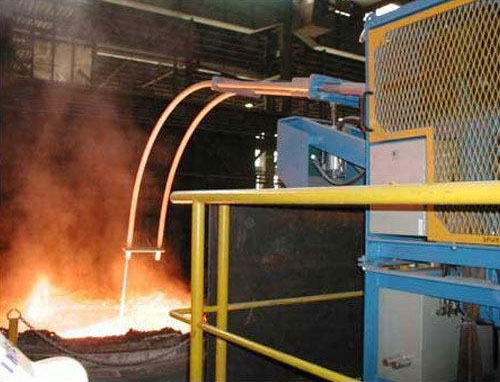
When choosing a cored wire for injection, there are a few factors to consider. In general, wire with a diameter of 18 mm and 0.8 mm sheath thickness should be used. Injection speeds of 110-120 m/s are recommended. But, what should you look for in a wire for this application? What other characteristics should it have? Read on to learn more about these factors. Here are the benefits of cored wire injection for the automotive industry.
Typically, 0.4 mm cored wires are produced by encapsulating powders in steel sheaths with a diameter ranging from five to eighteen millimeters. The injection process is carried out with a special wire feeder. Inclusions are controlled to prevent the steel from becoming clogged during the casting process. The molten steel is then treated with calcium to modify inclusions. Pure Calcium wires exhibit superior metallurgical performance and reduced Ca-treatment cost.
Several advantages of using a 0.8 mm cored wire for injection of additives into molten steel have been documented. These include an efficient method of releasing additives into the melt, increased productivity and increased yields. But what are the drawbacks of this process? Here, we review some of the key points. To begin, it is important to understand the difference between injection and release of additives.

A 0.9 mm cored wire is used in the steel industry for technical and commercial reasons. Its lower diameter permits lower addition rates for pure calcium. Its coil-inner-o and coil-outer-o are defined by the producer and are encoded information on wire diameters and powder contents. In the steel industry, the diameter is usually either 13 or 16 mm. It also varies depending on the country of origin.
Injection processes for 1.2 mm cored wires can be complex. One method involves the use of cored wire with an injected metal coating. This coating is composed of at least one material, which can be in the form of compacted grains or powders soaked in resin. The prior art is contradictory and contains compartmentalized information. A new Tata Steel specification has been developed based on this model.
The use of a 1.4 mm cored wire offers several advantages over its alternatives. It can increase the speed of travel and deposition while retaining the bead appearance and weld integrity. Its high deposition rates make it an excellent choice for use in welding applications where high-speed deposition is essential. Metal-cored wires also have high deposition rates compared to other consumables.
Metal-cored wire injection is an increasingly popular method for obtaining consistent steel thickness. This type of wire is typically available in diameters ranging from 1.0mm to 1.6mm. Steel fabricators can use this wire in a variety of applications, including valve springs, pneumatic armatures, and rolled steel. Whether a steel fabricator uses cored wire for injection or a non-cored wire injection process, there are several important points to consider.
Injection speed of 1.8 mm cored wire is 2 m/s and the thermal conductivity of paper is 0.15 W/Km. For each of these variables, we have to calculate the length of the wire to be injected. Then, we can calculate the weight of the entire coil, including the wire, sheath, and filling powder. The gross weight of the coil is the total weight of the wire plus the weight of the packaging.
A significant benefit of 2.4 mm cored wire is the fact that it offers high filling rates and a range of diameters. This wire is available in coils that comply with the EN 759 standards. In addition to being highly flexible, it is also easy to process and spool. The wire's high compaction ensures a uniform filling of 410 grams per meter throughout the coil. The wire's consistent performance is also improved by its low standard deviation and repeatability of the Ti% supplied.
Using a 2.8 mm cored wire injection for angioplasty has many advantages. It is a common procedure used to deliver a small volume of product into a target vessel. A well-done injection of this size can reduce the risk of stent failure. The size and core agent should be chosen according to the steel grade. The manufacturer of the 2.8 mm cored wire injection should be able to meet all the technical requirements of the procedure.

Write a Message